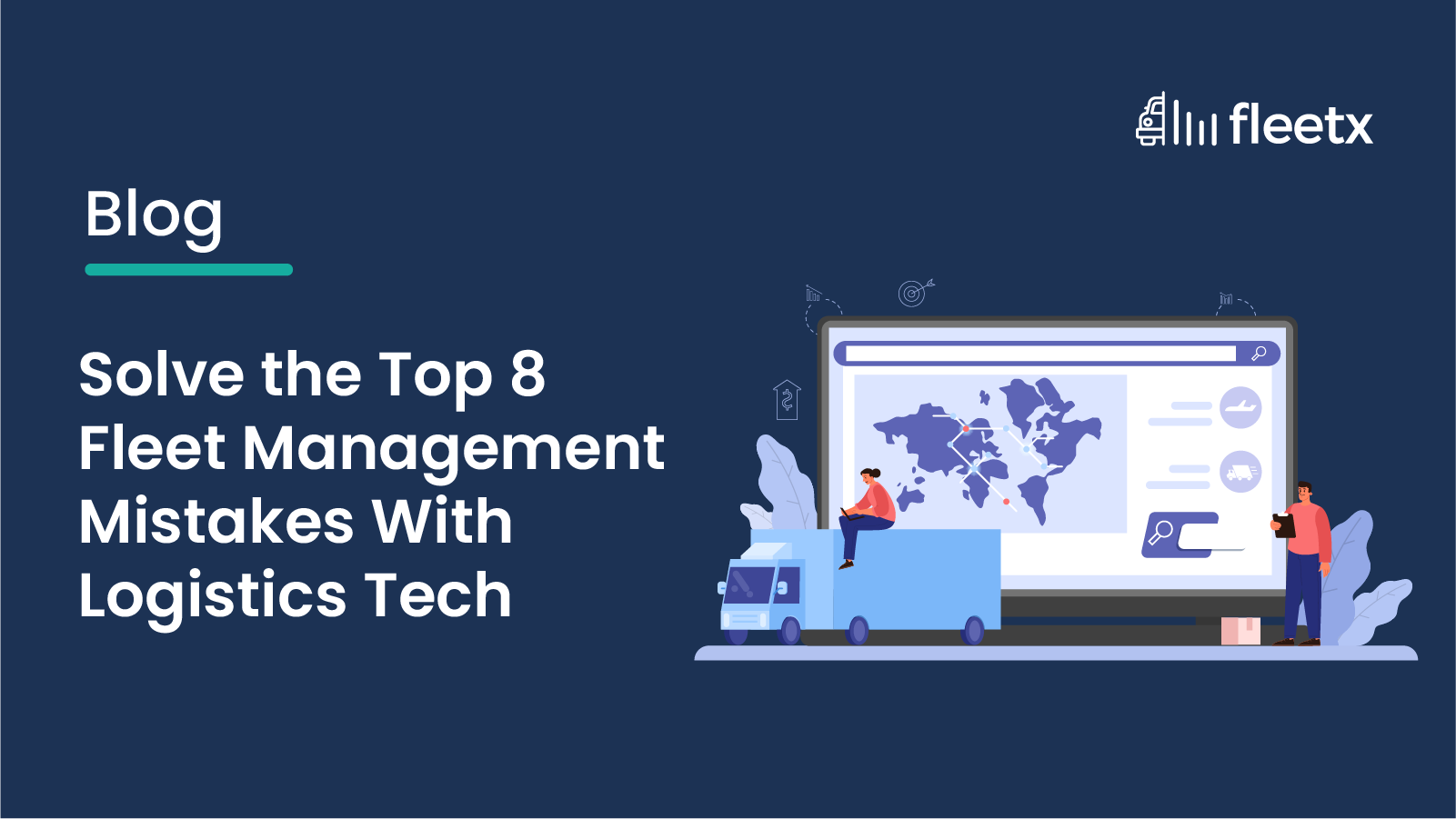
Fleet managers face numerous challenges in the workplace, and it can become overwhelming to prioritize tasks such as vehicle tracking, ensuring driver safety, route planning, and more, for hundreds of vehicles and various product categories. For instance, 4.6 billion tons of goods are transported every year across the country, 22% consisting of agricultural goods, 39% being represented by mining products, and manufacturing-related commodities constitute the remaining 39%. Trucks and other road vehicles deal with the majority of this movement; other modes of transport handle the rest.
Modern fleet management technologies can simplify daily operations by using innovative solutions such as vehicle telematics and real time GPS data that provide valuable insights, while contributing to improving fleet efficiency and the business bottom line.
However, operations don’t run as per schedule at all times, and even one minor error can cost the business significantly. Implementing the right technology solutions goes a long way in avoiding such mistakes. The most common human errors and the simultaneous fleet management features to avoid them are:
Mistake 1: Inefficient Route Planning & Vehicle Tracking
Ensuring on-time delivery is crucial for businesses to succeed. Availing longer routes, frequent rerouting, and unscheduled stops delay deliveries and give rise to dissatisfied customers. Moreover, managing operations over phone calls is a physical hassle that also disrupts the drivers’ focus – all leading to unnecessary time wastage, soaring fuel costs, and additional fleet expenditure.
Solution: A route planning software software helps in avoiding such situations by automating the task of planning efficient trips. Fleet managers can set predefined stops, set virtual boundaries using geofencing, and also set halting times. Studies indicate that implementing such route planning systems has reduced fleet trip times by up to 20%.
Mistake 2: Fuel Management Incompetence
Fuel expenses make up the majority of total fleet expenses. Inaccurate fuel management tactics, coupled with poor driving habits, incorrect route planning, and inadequate vehicle management, increase the costs. Rising fuel prices and fuel theft add to the problem.
Solution: A dedicated fuel management system monitors fuel consumption and becomes extremely beneficial in fuel consumption control. Real-time alerts or notifications of scheduled or unscheduled fuel refills, fuel ejection, or excess fuel consumption enhance visibility into speeding, idling, or vehicle malfunctioning. Additionally, fuel monitoring systems improve the fuel economy.
Mistake 3: Negligent Downtime Management
Regular maintenance keeps vehicles in proper working conditions and prevents sudden breakdowns. Trying to manage maintenance schedules and reduce vehicle downtime manually can be challenging. Manual tracking leads to missed maintenance deadlines and longer downtimes, negatively impacting the fleet’s efficiency.
Solution: Charting a proactive fleet maintenance schedule using vehicle telematics for health monitoring helps in preventing such issues. The automated system sends timely alerts to suggest maintenance requirements.
Mistake 4: Unregulated Operational Costs
Expenses related to fuel, maintenance, insurance, and administration comprise a commercial fleet’s operational costs. These costs impact the business’ profitability and budgets, and thus, managing this cost center becomes crucial. A comprehensive fleet analysis aids fleet managers in focusing on the areas of improvement, such as fleet efficiency, driving proficiency, emission levels, and others.
Solution: A fleet management software helps by identifying operational gaps, thereby reducing the overall operational costs – at times by up to 20% lower fuel expenses and 10% reduction in premiums.
Mistake 5: Non-Compliant Safety Regulations
Fleet managers bear the responsibility of ensuring their operations are compliant with the local, state, and federal regulations. For instance, compliance with the vehicle safety standard of AIS 140, environmental regulations, and others. Transporters have to incur heavy fines and/or deal with legal issues in case of non-compliance.
Solution: Implementing fleet management software compatible with such compliances and more is one of the ways to face this issue. Moreover, keeping an eye on the driver’s in-cabin activity with an AI-powered dashcam helps fleet managers leverage technology solutions to monitor the vehicle. Driver monitoring systems (DMS) share notifications whenever drivers undertake any non-compliant activity, like:
- Smoking
- Distracted driving
- Seatbelt violation
Mistake 6: Poor Implementation during Technology Integration
Rapid technology advancement provides a wide scope for improving fleet management strategies that include introducing AI and machine learning in the daily operations. Such initiatives often follow complicated implementation processes, and fleet managers have to be updated about the latest upgrades without disrupting the operations.
Solution: Implementing user-friendly platforms that are easily scalable is of crucial importance, and an appropriate knowledge of telemetry data usage delivers long-term results and significant cost benefits.
Mistake 7: Inadequate Communication Between Fleet Managers and Drivers
Seamless communication holds the key to smooth operations, but it becomes a massive challenge due to several other scheduled tasks. Such miscommunication leads to delays that hamper productivity levels.
Solution: Regular meetings with the workforce help. Also, using fleet management tools and software with audio-visual and two-way communication capabilities facilitates real-time, distraction-free driver updates.
Mistake 8: Lack of Adaptability
Fleet management software adoption is an ever-growing phenomenon, and the industry is undergoing rapid changes, driven by technological advancements and newer customer preferences. Outdated technology usage affects business productivity.
Solution: Being updated with the industry trends and selecting an appropriate software provider ensures operational productivity and higher profitability.
Embrace Technology to Eliminate Fleet Management Challenges
Fleet managers struggle with several fleet performance and maintenance issues. However, advanced fleet management solutions solve these challenges to build a resilient supply chain and drive business growth.
Fleetx solutions offer comprehensive visibility into fleet operations that reduce administrative tasks with the power of AI and data while driving smart decision-making. Implementing the solutions above addresses the shortcomings effectively, enhancing efficiency and reducing costs, while making the operations sustainable.






